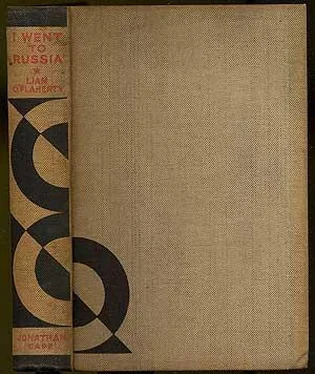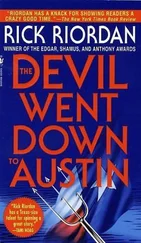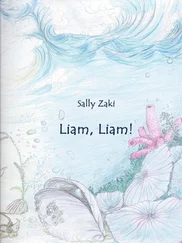Liam O'Flaherty - I Went to Russia
Здесь есть возможность читать онлайн «Liam O'Flaherty - I Went to Russia» весь текст электронной книги совершенно бесплатно (целиком полную версию без сокращений). В некоторых случаях можно слушать аудио, скачать через торрент в формате fb2 и присутствует краткое содержание. Город: London, Год выпуска: 2011, ISBN: 2011, Издательство: Bloomsbury Publishing, Жанр: Публицистика, на английском языке. Описание произведения, (предисловие) а так же отзывы посетителей доступны на портале библиотеки ЛибКат.
- Название:I Went to Russia
- Автор:
- Издательство:Bloomsbury Publishing
- Жанр:
- Год:2011
- Город:London
- ISBN:9781448205592
- Рейтинг книги:5 / 5. Голосов: 1
-
Избранное:Добавить в избранное
- Отзывы:
-
Ваша оценка:
- 100
- 1
- 2
- 3
- 4
- 5
I Went to Russia: краткое содержание, описание и аннотация
Предлагаем к чтению аннотацию, описание, краткое содержание или предисловие (зависит от того, что написал сам автор книги «I Went to Russia»). Если вы не нашли необходимую информацию о книге — напишите в комментариях, мы постараемся отыскать её.
I Went to Russia — читать онлайн бесплатно полную книгу (весь текст) целиком
Ниже представлен текст книги, разбитый по страницам. Система сохранения места последней прочитанной страницы, позволяет с удобством читать онлайн бесплатно книгу «I Went to Russia», без необходимости каждый раз заново искать на чём Вы остановились. Поставьте закладку, и сможете в любой момент перейти на страницу, на которой закончили чтение.
Интервал:
Закладка:
‘Comrade, I must warn you against such people. The situation is such. That girl is a gypsy. As in your countries, these gipsies have always lived by begging and robbery and such things. But here, since the revolution, they have been liquidated and settled on the land. Now the liquidated gypsies are a respectable fraction of the Soviet Union. Some of them are even doing good work for the Five Year Plan and the collectivisation of the land. But there are others that still remain unliquidated. This little girl is the child of such unliquidated people. By giving her money and food you only encourage her parents to remain unliquidated and therefore you are committing a counter-revolutionary act. For they take, of course, the money from her and drink it or speculate with it, being addicted to various illegal practices. Also, begging is condemned by Soviet law. So you see. . .
‘Oh! For Christ’s sake,’ I cried angrily, ‘do let a fellow have some fun. I can’t go on all day thinking of liquidating gypsies and Esquimos. Why can’t I give her money if she amuses me?’
‘But that also is false,’ he continued, ‘to do something wrong because it is amusing.’
‘But it’s not wrong. It’s human. I loved getting gifts when I was a child. It’s really so sweet and gives great pleasure to children and softens their little cruel natures. Fact.’
‘You are hopeless,’ he said. ‘You are by nature a bourgeois.’
Chapter XIV. Mingling With The Masses
For five days, comrade Levit accompanied me from morning until night. During that time, I grew extremely fond of him. It was impossible to do otherwise. He was such a delightful fellow. It seemed impossible to deprive him of his good temper. No service seemed too great to demand of him. His enthusiasm for life and his hope for the future, his steadfast belief in the Communist God and his exuberance gave me a fresh grip on reality, which the emptiness of a literary life in Western Europe (where God is dead) had made a faded dream. Yet he bored me to tears. I determined to get rid of him, lest my boredom should make me insolent and unmannerly towards him, who was so kind.
And I was seeing nothing of what I wanted to see, because of the sedulous care with which he convoyed me. He carried me along in such a hurry that I was blind and deaf to my surroundings. I saw churches, theatres, newspaper offices, clubs and creches which merely bewildered me without teaching me anything. Even a literary gathering, to which we went, seems to me at this moment nothing more than a prolonged shout.
On the fifth day I escaped. Another comrade and scholar whom I met at the Bureau offered to introduce me to an Englishwoman who had married a prominent Russian official. This comrade also specialised in English literature and as his period almost touched that of comrade Levit there was a certain rivalry between them. Comrade Kashkin was a Slavic Russian. He had a red head and he had fought in the army, where he received a wound which injured his nervous system considerably. For that reason, perhaps, he was more sane than most of his compatriots and not in the least fanatical. Of course he was an ardent Communist but being a highly educated man, belonging to a family that had been civilised before the revolution, his views on life were by no means violent.
Tall and slim, with a freckled face and a subdued voice, it was hard to differentiate between him and an intelligent English public schoolboy in manners. But he was exceedingly touchy and could not brook argument, owing, apparently, to his wounds. If one did not argue with him he was very charming; but then it is impossible to live in Russia without argument. Life is so vital there and everything is so new and in such a volcanic state that the simplest discussion becomes an argument to the death.
Indeed, comrade Kashkin disapproved of me; so that we began to argue at once on our way to meet the Englishwoman. When we got on a tram-car, he said to me:
‘Have you read much of our new Soviet literature?’
‘Not very much,’ I said. ‘A little of Pilniak and of Babel and a few other writers whose names I cannot remember.’
He shrugged his shoulders and said these writers were not the best.
‘Oh!’ I cried, eager to please him. I have read some of a book by a writer called Sholohov in a French translation. It was serialised in UHumanite. I thought it was really first-rate.’
Comrade Kashkin got furious at once.
‘But why?’ he cried irritably. It is a popular book, but there are others much better. Sholohov is not an intellectual.’
‘But that’s why I like his work,’ I said. It’s so fresh. It smells of the earth. He knows his art. It’s vital and genuine and simple.’
‘But there is no philosophic depth in it. It’s raw.’
‘But isn’t freshness what we want? We have had enough of pretentious philosophies. We want power and natural beauty to regenerate literature. There are skilled craftsmen by the thousand in most European countries, but they are only echoes of what has been written before, critics posing as creative artists.’
‘You are an anarchist,’ he cried angrily. ‘And for that reason you like blood and thunder, raw life.’
‘Why! Bless my soul,’ I cried, equally angry, ‘you speak like the most bourgeois English intellectual. I expected to find a love of life among Soviet literary people, but you are just as bad as Western European intellectuals, who only know of life what they have read of it. That’s why I like Sholohov because he seems to me to have lived the life of which he writes, to revel in it and to put it on paper exactly as he found it, without any theories as to how it should be.’
‘But that’s not the point,’ he cried. ‘A writer must be disciplined and educated. He must have culture.’
‘I grant you that it is better if he has culture and it is an axiom that no writer can write anything intelligible or worth while without being disciplined, but nine intellectuals out of ten in Paris, London or Berlin have more culture than Shakespeare, as far as accumulated knowledge of books is concerned. Yet ten thousand of them combined could not write one scene of Hamlet. For God’s sake don’t tell me that what I am beginning to suspect is true.’ ‘What is that?’
‘That in Soviet Russia, Communist intellectuals are suffering from a most virulent inferiority complex, which manifests itself in trying to imitate the decadent writers of Western Europe, all the wordy subtlety that has no guts, no blood, no semen.’
‘You are utterly ridiculous. We are trying to raise the level of civilisation, trying to discipline the uncultured writers that are taking to literature, trying to tone down their rawness. . . .’
‘Tripe,’ I cried. ‘That is the worst form of romanticism. A writer can only express the life he sees around him.’
He aggravated me so much, more by his manner than by his ideas, which were probably better than mine, that I almost quarrelled violently with him. For the latter part of the journey we lapsed into an exhausted silence. We arrived at the flat occupied by the English wife of the important Soviet dignitary and I was deeply impressed by its simplicity. It was similar to a Council flat in London. I was still more impressed by the Englishwoman herself. In spite of many years’ residence in Soviet Russia she had retained every atom of her British middle-class solidity. It was obvious that she despised Russia and the Russians, was bored with Communism and hankered for London. From her conversation and her attitude towards things, I gathered that she was mildly socialistic and I wondered how she had got herself into her present position. But on consideration, I understood it.
After the World War, a section of the middle-class experienced an aching desire for some religion that would act as an antidote to the depression produced by the war; some vital and virile religion, different from the prevalent Christianity, which has grown unsexed and limp through old age. Those deplorable young men who shirked the war, giving their conscience as an excuse, found in socialism a justification for their lack of courage. Women of no great beauty also found in socialism a justification for forming with working men temporary associations, which they were unable to make among men of their own class, owing to the small numbers of the latter; the majority being slaughtered. But all these middle-class people, both male and female, were not really socialist or revolutionary. They were merely disgruntled and dissatisfied. They remained British and Imperialist to the core, although for the moment the Empire failed to satisfy their needs. To them the Russian Revolution came as a gift from God; but as the Revolution developed they began to see its real nature, that it was not a sentimental attempt to create an earthly paradise of free love and artistic communes, but a savage attempt by enormous masses of peasants to get bread and culture. Revolted by this spectacle, they drew back. Some returned to their Union Jacks. Others joined the British Labour Party and made it respectable. The unfortunate few who had committed themselves irrevocably became bitter.
Читать дальшеИнтервал:
Закладка:
Похожие книги на «I Went to Russia»
Представляем Вашему вниманию похожие книги на «I Went to Russia» списком для выбора. Мы отобрали схожую по названию и смыслу литературу в надежде предоставить читателям больше вариантов отыскать новые, интересные, ещё непрочитанные произведения.
Обсуждение, отзывы о книге «I Went to Russia» и просто собственные мнения читателей. Оставьте ваши комментарии, напишите, что Вы думаете о произведении, его смысле или главных героях. Укажите что конкретно понравилось, а что нет, и почему Вы так считаете.












